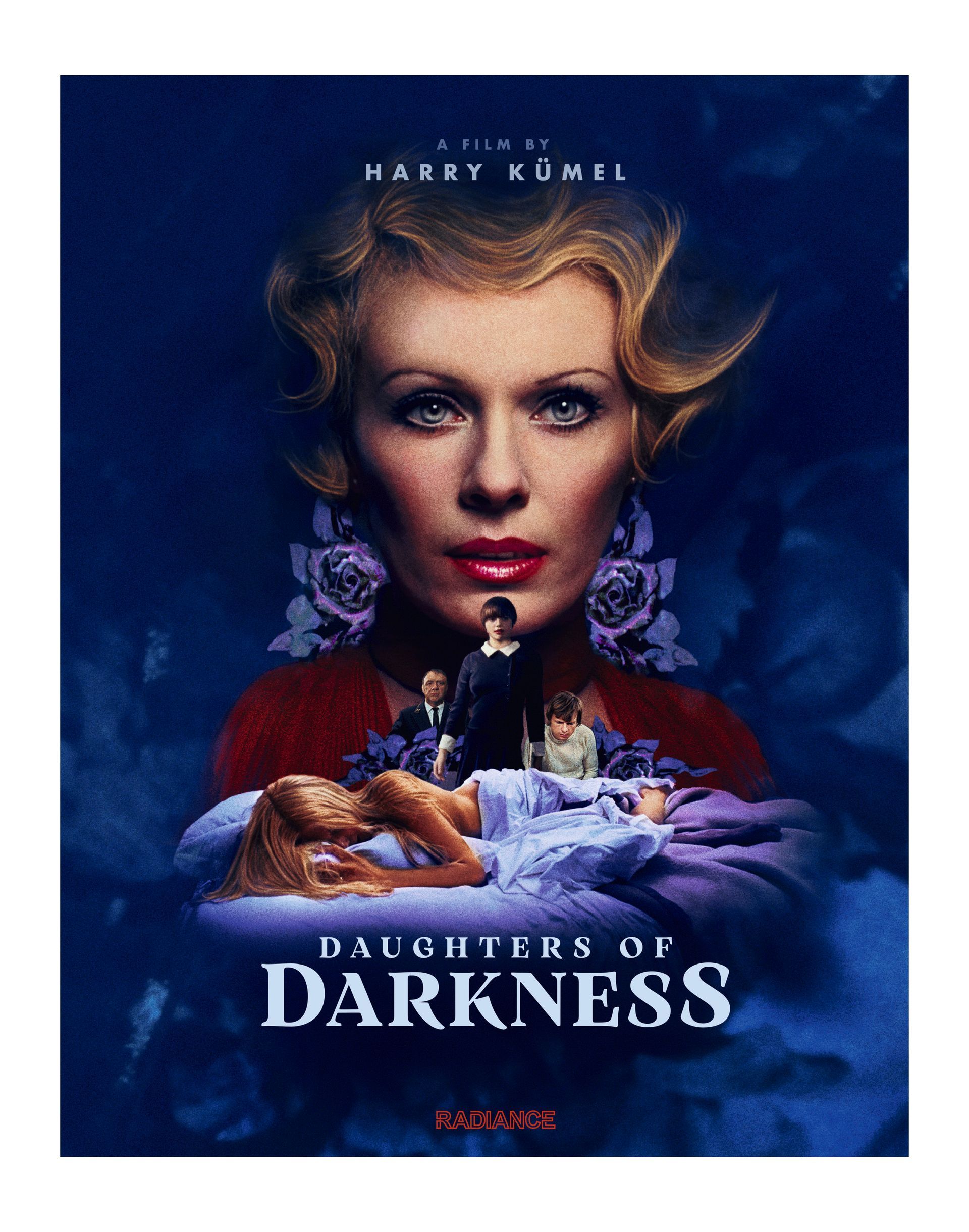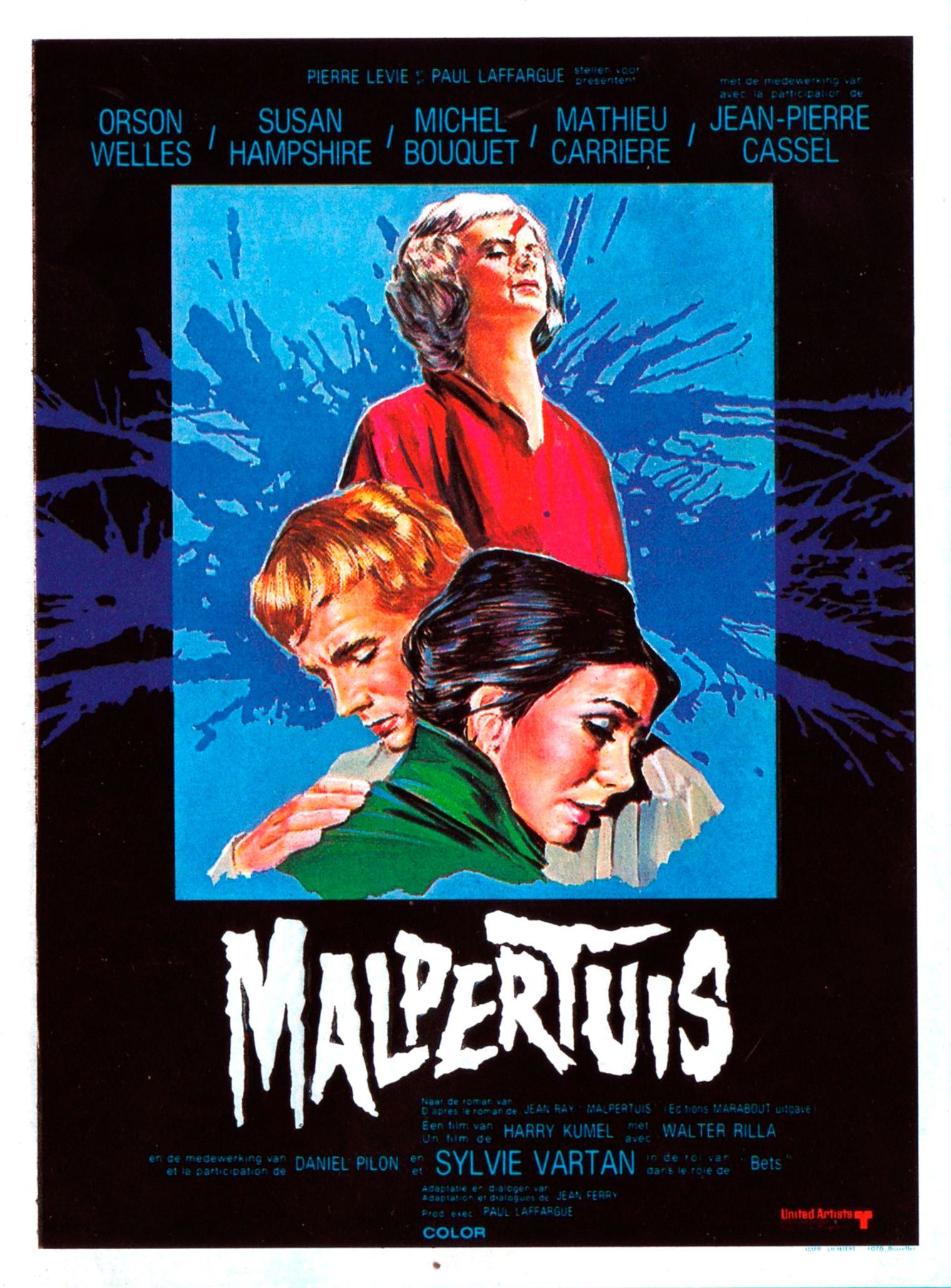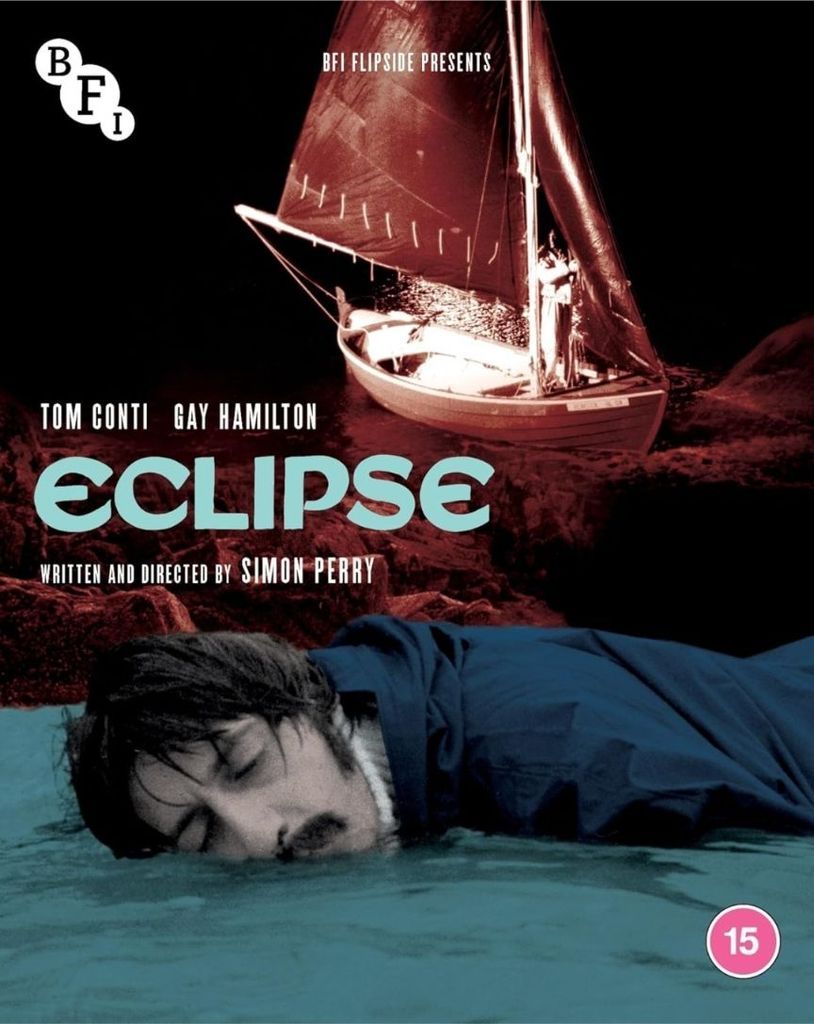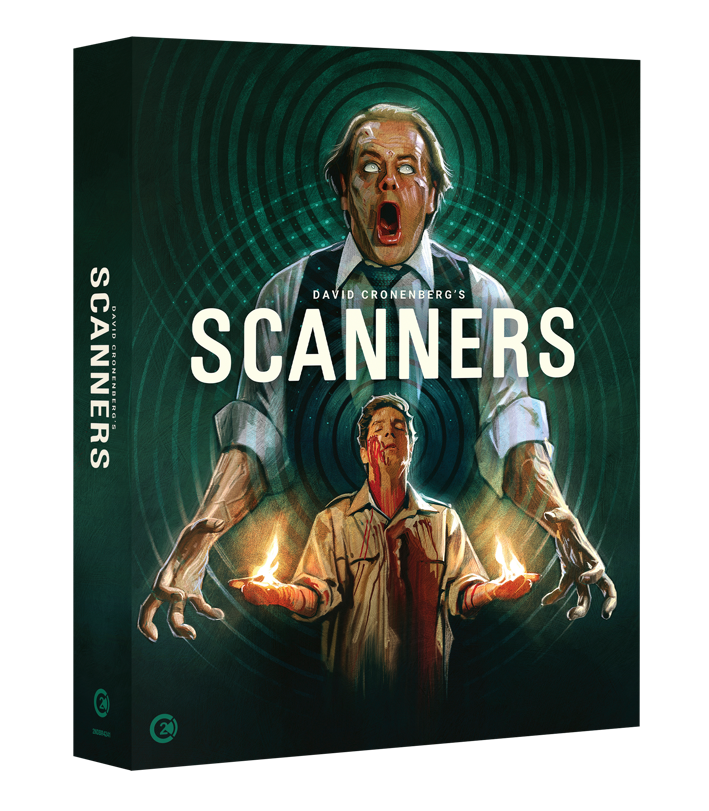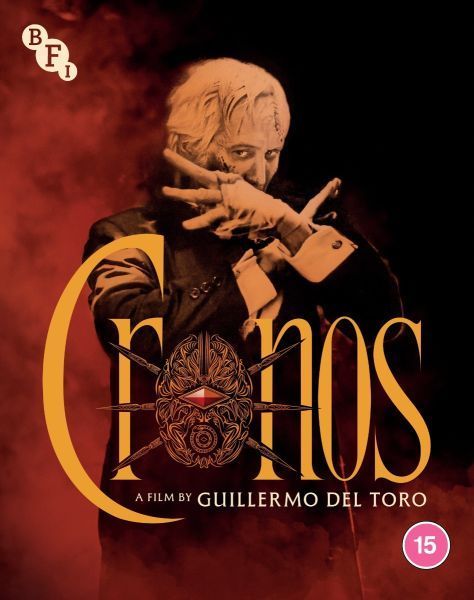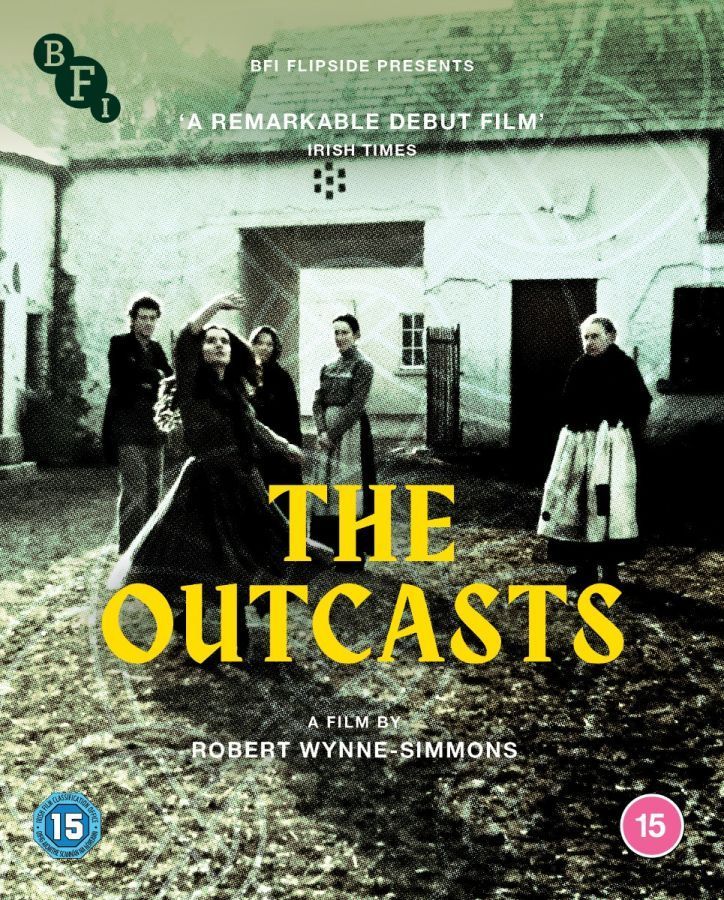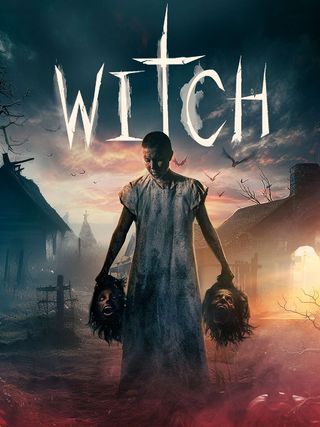The Trial of Christine Keeler (2020) and Scandal (1989)
The Trial of Christine Keeler (2020) and Scandal (1989)

The Trial of Christine Keeler (Acorn Video AV3551)
Performances are mixed, some good, some perfunctory. Sophie Cookson occasionally throws her heart into the playing of Christine Keeler and what pains life has in store for her, laughs and jokes at the good times, but her character mainly maintains a poker face, in spite of much provocation. From her stint as a dancer at Murray’s Cabaret Club, to her meeting with society osteopath Stephen Ward, played with quiet insouciance by James Norton, to her introduction by Ward to sexual predator and conservative cabinet minister John Profumo (Ben Miles delivering a sharp, critical portrait of this careless, greedy and egotistical individual) the events unfold and escalate at a rapid pace.
Mandy Rice-Davies lookie-likey Ellie Bamber plays the gobbier of the inseparable pair, an occasional scene stealer, perfectly in keeping with her character, but with a peculiar accent that begins as cockney and ends up as Received Pronunciation. Ironically, Mandy gets the best line in the story; when told that Lord Astor denies having an affair with her, she replies ‘Well he would say that, wouldn’t he?’, a response which has since gone down in history.
Taken under Stephen Ward’s wing, Christine and Mandy quickly become his tenants, his party makers and his playthings, and the show should be in its element at this point. The issue of exploitation of the young by the old is unfortunately lost by using such a young looking actor to play Ward; the real one was aged almost fifty at the time these events took place. Although Norton delivers a good performance, some of the more innocent domestic scenes make Ward out to be more like a gay friend of the girls, rather than a man exploiting them for personal gain with his gentle requests for money ‘for the telephone bill’. The script has occasional flashes, such as Christine’s poignant ‘you’ve never been without it’ (i.e. money) to Ward, but in the main, it’s the usual trawl through the posh/common clichés that could have been avoided.
There are plenty of little period vignettes to keep the viewer interested, from Christine’s accidental nudity at Lord Astor’s swimming pool, to her frequent appearances in her favourite coat, a sheepskin number, leaving the viewer to wonder what she was doing with all the clothes bought for her as presents. The furtive meetings in a formica-tabled café with Mandy, and the repeated slow motion footage of Christine being pursued though London streets by a storm of pressmen or a baying mob, or both, are atmospheric enough, but come over as merely functional. The lengthy court room dramas, taking in boyfriend Johnny Edgecombe’s shooting up of Ward’s flat, Christine’s reported assault by old boyfriend ‘Lucky’ Gordon, and Ward’s for living off immoral earnings, start to feel like padding to get six episodes out of what could probably have been done in four.
Christine’s near-simultaneous relationships with a cabinet minister, a Russian spy, a society osteopath and two black men is the stuff of legend. As we know, it was Profumo’s denial of his relationship which ensured his own and his Government’s downfall, but the circumstances surrounding the fate of Stephen Ward are unclear, and no doubt still subject to the Official Secrets Act. This dramatization of the cataclysmic events of nearly sixty years ago manages to reduce what should be a red-hot story of establishment vs. the people, youth vs. age, old mores vs. new freedoms and attitudes to gender and class, into a Sunday evening’s ’Heartbeat’-like entertainment, with a little titillation thrown in. Rather than being Christine’s story, there is an undeniable and probably undeserved sympathy in the script for Stephen Ward that recalls the ‘Scandal’ film where the more age specific John Hurt played the role. A largely wasted opportunity.
Scenester
24/1/2020Trailer: https://ux.btmail.bt.com/cp/index-rui.jsp?v=2.10.3#app/mail
https://www.youtube.com/watch?v=hsanPZvikII
Link: https://www.acorndvd.com/
Scandal (1989) BFI Cat. no. BFIB1369 (Cert 18)
Released in an age when the cinema going public seemed more interested in high adventure heroics or low comedy, ‘Scandal’ arrived like a surprise visitor to a birthday party, and a not altogether welcome one, at that. Set in and around 1963 and based on the dramatic events that toppled Harold MacMillan’s government, this reminder of the precarious nature of the job could not have come at a worse time for then Prime Minister Margaret Thatcher, at the end of her tenure.
Director Michael Caton-Jones’ approach is to keep it a lively period piece with plenty of murky intrigue and titillating glamour. The casting of Joanne Whalley as showgirl and model Christine Keeler was inspired, a close resemblance to the real Christine working very much in her favour. Perhaps less so, the use of US star Bridget Fonda as Mandy Rice-Davies, whose performance is clipped, tight lipped and lacks the brashness of the real article.
Our film opens in Murray’s Cabaret Club, where Christine performs as a lightly clad dancer in one of the many anodyne routines that kept visiting businessmen and their wives (or perhaps, escorts or other men’s wives) entertained, on a diet of overpriced champagne. It’s in this curiously quaint club that she meets society osteopath Stephen Ward (John Hurt, superb throughout) who befriends her and allows her to live in his West End flat. An initial spat between Christine and new girl Many Rice-Davies is quickly forgotten by both, and Mandy joins Christine at the flat. They are introduced to Ward’s wide circle of friends and their uninhibited ways, at parties that soon turn into rather genteel orgies.
Christine’s introduction to rather more lofty members of society results in affairs with the Minister for War, John Profumo (Ian McKellen, excellent and under used, here) Soviet ‘diplomat’ (to you and me; spy) Yevgeny (Eugene) Ivanov (Dutch actor and director Jeroen Krabbe), as well as her ongoing, troubled relationships with two black men, ‘Lucky’ Gordon (Leon Herbert) and Johnny Edgecombe (pop star Roland Gift, then well known as singer of the Fine Young Cannibals). Her status as trouble magnet is already established here; her graduation to public hate figure to the country’s self-satisfied ruling class, comfortable middle class and downtrodden working class alike, quickly follows.
It’s an oft repeated cliché about the 1960’s, that it was a time when gangsters rubbed shoulders with pop stars and politicians, and ‘Scandal’ revels in it, with a lot of even more intimate contact thrown in for good measure. The closely shot scene when Christine and Mandy dress up and make up to the sound of The Shadows’ ‘Apache’ is more reminiscent of a pop video of the 1980’s, co-opting an underwear advertisement, their faces right up to the camera lens, as they put on their war paint. All this is in stark contrast to Christine’s former home life, when she visits her impoverished mother, languishing in a shabby prefab in a rural wilderness. A surprise visit from her ‘boyfriend’ Ward ramps up the contrast further, as he greets Christine’s mother oh-so-correctly, a manner which mother is clearly not used to.
Music forms an essential part of the action, with the innocent fun of Nat King Cole’s ‘Those lazy, hazy, crazy days of summer’ by the pool at Cliveden, where Christine would frolic naked one night, to the joyous Jimmy Cliff’s ‘Miss Jamaica’ for a scene in a West London club. The theme song ‘Scandal’ is the only original piece here, a sultry lament sung by the great Dusty Springfield in her signature, breathy style. Contemporary opinion among some was that the film looked like an over extended pop video, but there’s more than just a snappy soundtrack and a bit of mild titillation going on here. The harrowing flashback scenes to Christine’s troubled earlier adolescence, the abuse by her stepfather and her subsequent abortion are painful to watch. The courtroom scenes where Stephen Ward is on trial on the largely trumped-up charge of living off immoral earnings are comic and tragic, John Hurt’s performance of Ward’s breakdown completely credible. The endless pursuit of Christine and Co. by the paparazzi of their day are well realised, and form the most lasting and strangely familiar images to a modern audience.
Where ‘Scandal’ loses its focus, is in its overly sympathetic view of Ward, whom it regards in an almost heroic light. Buying into the idea that Ward was simply a libertine who used his high falutin’ contacts and stable of good time girls to engineer a honey trap for catching Russian spies is sheer, Cold War codswallop. His fate was tragic of course, and it is possible to sympathise with him for his abandonment by society and his suicide, without losing sight of his guilt for his activities as a procurer of perilously young girls for a collection of sleazy, powerful old men.
I have already said that Christine Keeler attracted trouble like a magnet, and perhaps the implied warning on Lewis Morley’s nearly-naked portrait of her in a plywood chair should have been heeded. Christine’s arms crossed legs akimbo pose behind the reversed chair back, forms a letter ‘X’ – the forbidden fruit?
‘Scandal’ is out on DVD and BluRay , BFI Player iTunes and Amazon on 24 February.
Scenester
23/2/2020
Clip:
https://www.youtube.com/watch?v=SnOnuNb7lu0&feature=youtu.be
Buy here:
https://shop.bfi.org.uk/
23/2/2020
Clip:
https://www.youtube.com/watch?v=SnOnuNb7lu0&feature=youtu.be
Buy here:
https://shop.bfi.org.uk/
